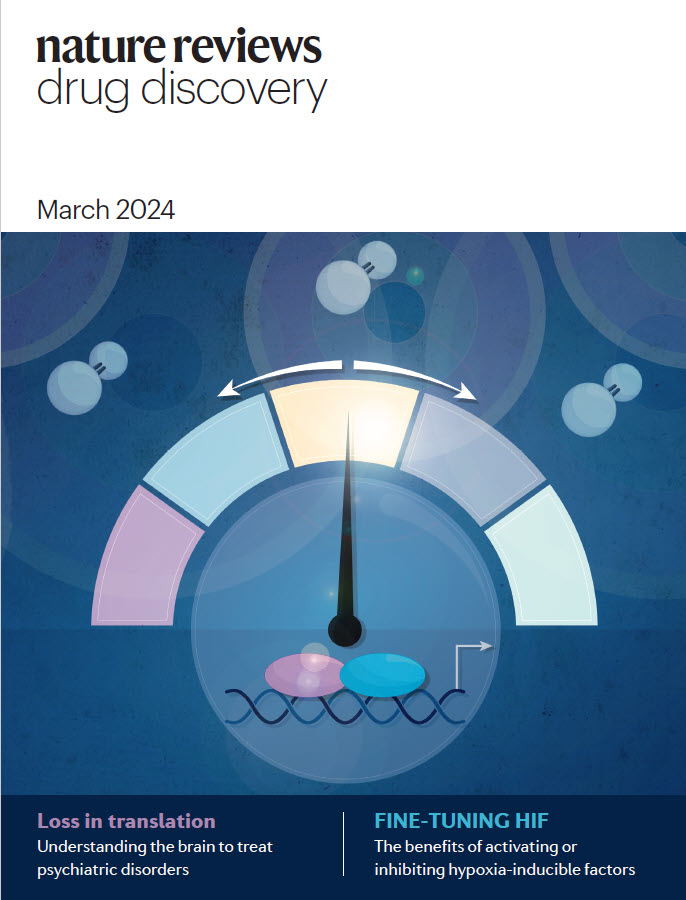Scientific Review Focuses on Hypoxia-Inducible Factors

A new scientific review published by faculty in the Department of Anesthesiology, Critical Care and Pain Medicine and the Department of Emergency Medicine highlights the biochemical mechanisms that control the stabilization of hypoxia-inducible factors (HIFs) and the molecular strategies to pharmacologically promote or inhibit HIFs.
“Targeting hypoxia-inducible factors: Therapeutic opportunities and challenges” was published as the cover article in the March 2024 issue of Nature Reviews Drug Discovery, which has a 2-year impact factor of 120.1.
Co-authored by Xiaoyi Yuan, PhD, and Wei Ruan, MD, PhD, both assistant professors of anesthesiology, this scientific review describes the molecular mechanism controlling the transcriptional activity of HIFs. It also focuses on pharmacological opportunities that promote the stabilization of HIFs or inhibit their functional activity.
The authors discuss the strategies and therapeutic implications of pharmacological stabilization of HIFs (named HIF-PHD inhibitors) to treat renal anemia, inflammatory diseases, or ischemia-reperfusion injury. For example, co-author Ben Bobrow, MD, is currently leading a randomized clinical trial using a HIF-PHD inhibitor to treat lung inflammation in patients with acute respiratory distress syndrome (ARDS) at UTHealth Houston, in collaboration with the Department of Anesthesiology, Critical Care and Pain Medicine. The article also sheds light on HIF inhibitors for treating cancers and other emerging indications. Finally, they review specific challenges to using HIF activators or inhibitors in patients and provide an outlook on the future opportunities and potential limitations for targeting hypoxia signaling pharmacologically.
UTHealth Houston co-authors include Holger Eltzschig, MD, PhD, chair of the Department of Anesthesiology, Critical Care, and Pain Medicine; Bentley Bobrow, MD, chair of the Department of Emergency Medicine, Xiaoyi Yuan, PhD, and Wei Ruan, MD, PhD.

More information can be found here.